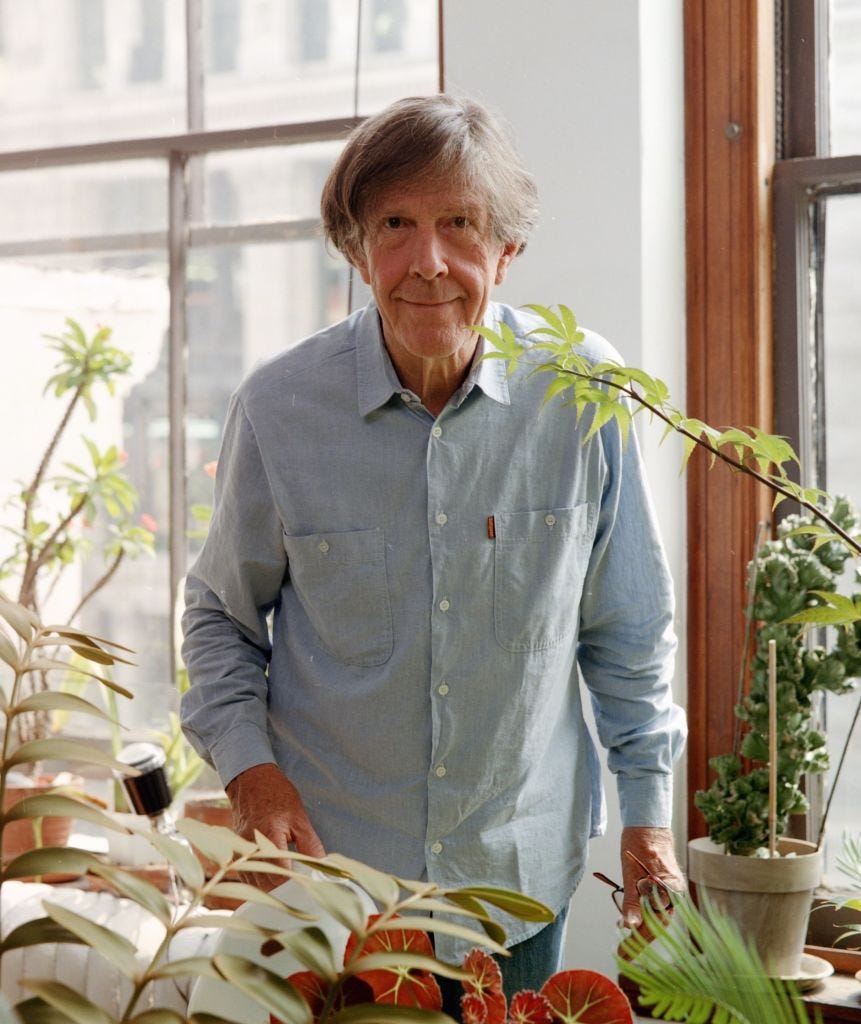For two issues now, I’ve been circling around the idea of self-discipline: first, compiling some unhinged strategies for getting stuff done when you really don’t feel like it; and then wondering whether the real secret to high achievement is a deep undercurrent of laziness.
But maybe both of those issues were based on a fundamental misunderstanding of what discipline actually means. Working on the copyedits for my new book last week, I had to check some facts in David Revill’s 2012 biography of the composer John Cage, and I was reminded that Cage—typically—came at this from a totally different angle. Revill writes:
Cage points out that discipline comes from the same root as “disciple”; one gives oneself up, administers one’s life from the core of one’s being so it may follow a path. “Discipline is giving yourself rather than expecting things to give themselves to you,” in the formulation of Cage. “Disciplines are important as disciplines. The specific nature of the discipline is not as important as the discipline itself.” He proposes, “the question is not what should I do or how to do it but how one achieves the state of being disciplined—learn true discipline to give oneself up.”
OK, this kind of blew my mind. Discipline is not a virtue that some people possess and others lack, Cage says, nor is it a muscle to be exercised and strengthened over time. Rather, it is giving yourself over to something. It is not about exerting self-control; it’s about surrendering control.
And for those of us pursuing creative projects, Cage’s framing suggests a tantalizing possibility: Making art—it’s not about you! Or shouldn’t be. Instead, it’s about giving yourself to a project, and then giving the project to others.
This runs counter to what a lot of us grew up being told about art and creativity: that it’s all about self-expression. And, sure, that is part of it. But perhaps it’s a much smaller part than we were led to believe?
I, for one, find this possibility weirdly liberating. And it reminds me of something the late filmmaker David Lynch said in a 1986 interview, arguing for the importance of “being true to your ideas”:
I really believe it’s like the Beach Boys said: “Be true to your school.” You gotta be true to the ideas that you have, because they’re even bigger than you first think they are. And if you’re not true to them, they’ll only work part way. They’re almost like gifts, and even if you don’t understand them 100 percent, if you’re true to them, they’ll ring true at different levels and have a truth at different levels. But if you alter them too much then they won’t even ring. They’ll just sort of clank.
Lynch treated his ideas like something outside of himself (“they’re almost like gifts”), with their own agenda that he needed to honor and try to do justice to. This dovetails with what Cage says above, that the goal is to be in service to your project rather than try to muscle it into a form that your personal taste says is “good” or “interesting” or whatever.
I realize these are fine distinctions with lots of blurry edges. But I think there’s something here—some lessening of anxiety, at least, that might occur if you can believe that the creator’s job is not actually creating, exactly, but shepherding a project toward whatever form it wants to assume.
And if you can accept this idea, does the creative process suddenly become effortless? Not exactly. One of Cage’s favorite quotes was a line from a Zen Buddhist monk (supposedly; the provenance is unclear) who said, “Now that I’m enlightened, I’m just as miserable as ever.”
OK, BUT HOW?
Cage says that “the question is not what should I do or how to do it but how one achieves the state of being disciplined.” OK, so how does one achieve that state?
This afternoon, in a bonus post for paid subscribers only,* I’ll be suggesting one way of getting to that point, based on an inspired suggestion sent to me by a reader last summer, which I think marked a real turning point in my quest to finally, actually finish my long-overdue book project.
This post is the beginning of Worm School Extension, a five-part series that I’ll be sending out weekly to paid subscribers starting today (building upon last summer’s Worm School). If you’d like to receive all five bonus posts, and also join my weekday Zoom coworking club—and also just generally help keep this reader-supported newsletter chugging along—upgrade to a paid subscription below and everything will be delivered directly to your inbox, including my sincere thanks for your support. 🙏
*Update: that bonus post is now available for paid subscribers here!
LIVE CHAT NEXT TUESDAY
Next Tuesday, June 17, at 10am Pacific / 1pm Eastern time, I’ll be joining the brilliant cartoonist
, of New York Cartoons, on Substack Live to talk about my books, our shared obsession with the creative process, and whatever other topics come up in the moment. Oh, and Jason will be drawing as we chat (and I might do some very amateur drawing with him). Should be fun! Add it to your calendar here.RELATED ISSUES
From the archive:
Thanks for reading! This newsletter comes out every other Tuesday—and you can help keep it coming by upgrading to a paid subscription, buying one of my Daily Rituals books, forwarding this email to a friend, or even just clicking the “like” button below.










It took me years to understand discipline—until I let go and realised that what truly matters is having a goal beyond yourself, one that reaches toward a higher state. Discipline becomes meaningful when your actions serve as an invitation to be met not as you imagine, but as the universe intended.
I’ve been thinking a lot about whether projects have forms (a bit like statues) and whether our job as creators is to listen carefully to them, gradually chipping away to remove the parts that are not the project. The more I do creative work, the more I believe this to be true. This facet on discipline is an excellent angle on this. I will submit more! (to my daily walking podcast, Walk the Pod.) Thanks Mason.